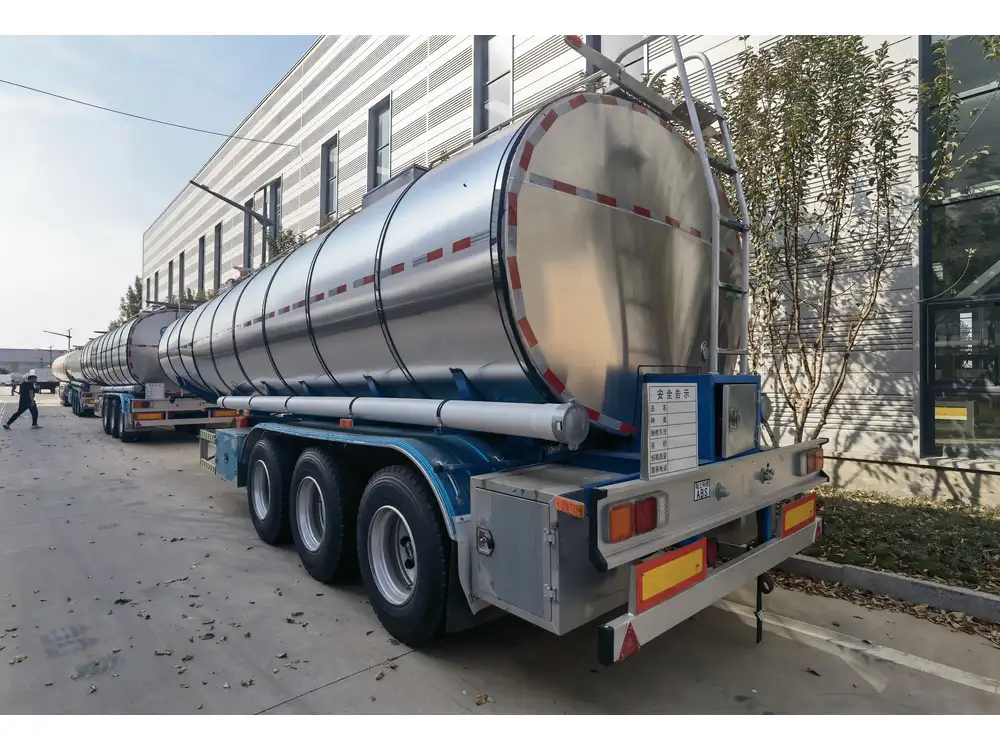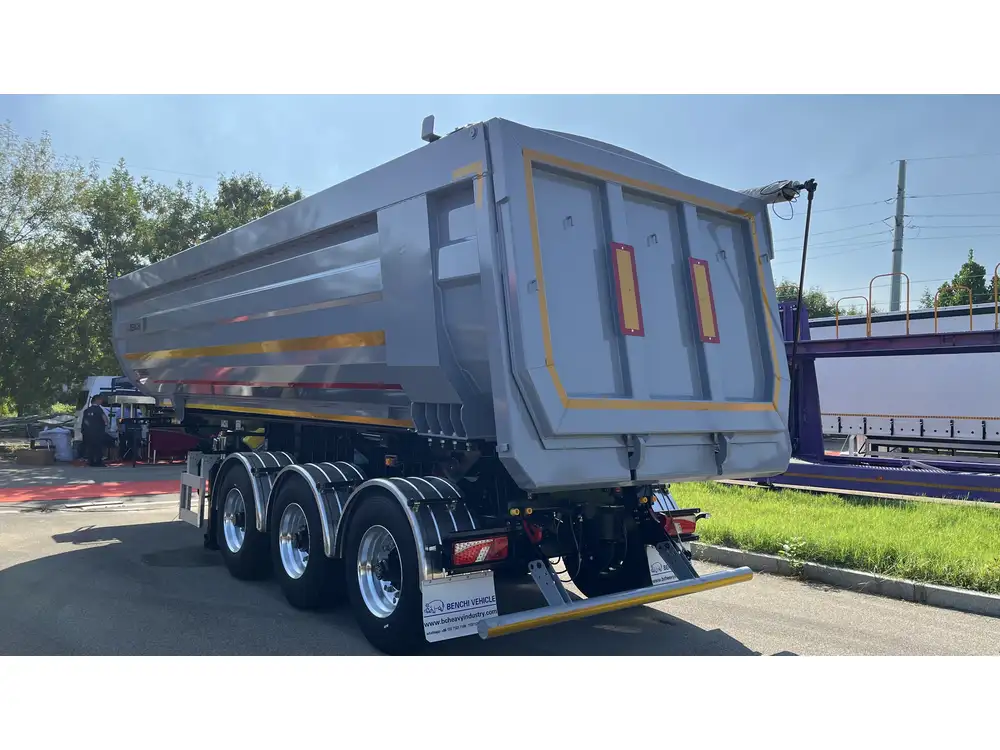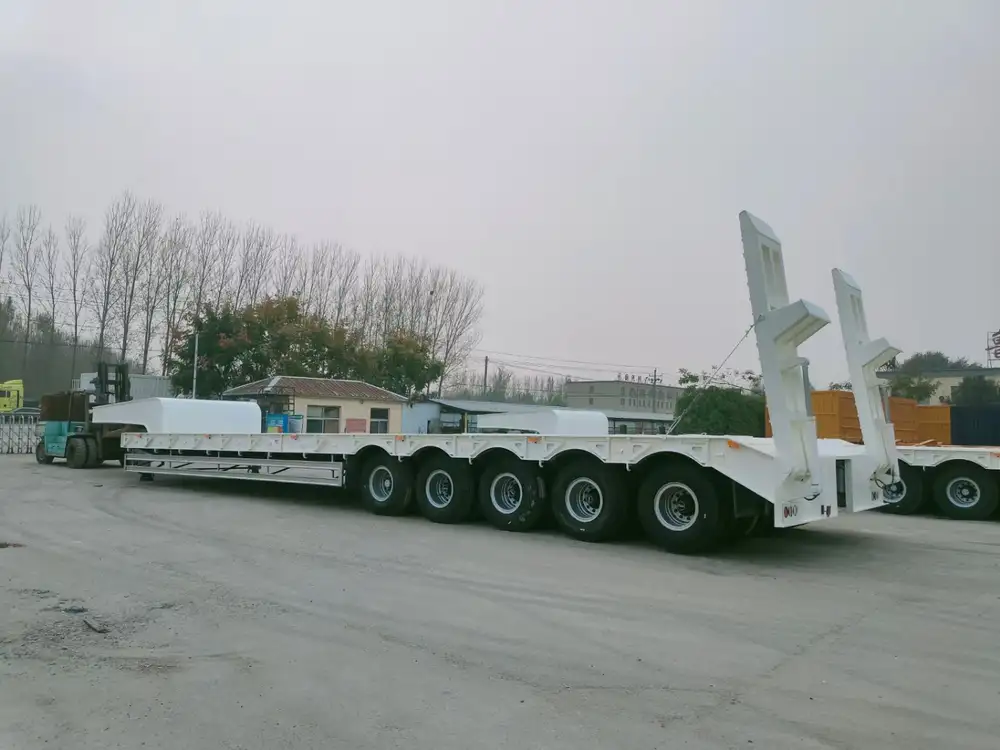When it comes to transporting materials, whether for construction, landscaping, or personal projects, selecting the right size dump trailer is essential. This decision can significantly influence efficiency, safety, and overall cost-effectiveness. Yet, determining the ideal size requires a keen understanding of various factors, including payload capacity, dimensions, and specific use cases. This guide breaks down these factors meticulously to ensure you make an informed choice.
Understanding Dump Trailer Sizes: The Basics
Dump trailers come in varied sizes and configurations, typically categorized by their payload capacities. Assessing the right size involves considering what’s most critical for your hauling tasks. Below is a detailed table outlining the common sizes and their respective payload capacities:
| Trailer Size | Payload Capacity | Dimensions (L x W x H) | Ideal Uses |
|---|---|---|---|
| 5 x 8 ft | 2,000 lbs | 8′ x 5′ x 2.5′ | Residential yard waste, small debris |
| 6 x 10 ft | 3,000 lbs | 10′ x 6′ x 3′ | Light construction, landscaping |
| 6 x 12 ft | 4,000 lbs | 12′ x 6′ x 4′ | Medium landscaping, furniture moving |
| 7 x 14 ft | 5,500 lbs | 14′ x 7′ x 5′ | Larger construction, heavy debris |
| 8 x 16 ft | 7,000 lbs | 16′ x 8′ x 5.5′ | Commercial construction, bulk loads |
Weight Distribution and Capacity
While size is a critical factor, understanding weight distribution is just as vital. Overloading a trailer can cause safety hazards, damage the trailer, and lead to fines if driven on public roads. Each dump trailer is engineered for a specific weight limit, and it’s crucial to adhere strictly to these guidelines.

Determine Your Primary Use Case
Identifying your primary hauling requirements is critical. Ask yourself:
- What materials will you be transporting?
- How frequently will you use the trailer?
- What type of vehicle will be towing it?
Answers to these questions will guide you in choosing a trailer that suits your needs.
Common Application Scenarios for Different Sized Dump Trailers
Let’s delve into common use scenarios that will help you correlate your needs with the appropriate dump trailer size.
Residential Use
For homeowners, smaller trailers—from 5 x 8 ft to 6 x 10 ft—are sufficient for yard debris, mulch, or small renovation projects. Their maneuverability makes them ideal for tight spaces often found in residential areas.

Example Use Case: Yard Cleanup
For a garden overhaul, a 6 x 10 ft trailer, offering 3,000 lbs of payload capacity, is apt for hauling away branches, soil, and landscaping materials.
Commercial Use
Businesses or contractors may require larger dump trailers for significant projects. Sizes from 7 x 14 ft to 8 x 16 ft provide both volume and weight capacity for transporting heavy materials like gravel, construction debris, or junk removal.
Example Use Case: Construction Sites
On a mid-sized construction site, a 7 x 14 ft dump trailer with a capacity of 5,500 lbs is advantageous for hauling away rubble while delivering fresh materials.

Specialized Applications
Specific industries such as landscaping or municipal services may require custom specifications:
- Landscaping Services: Heavier-duty trailers may be needed for transporting loads such as soil, bricks, and other landscaping materials.
- Demolition: In demolition work, a larger trailer that can handle heavier weights and more significant volumes is usually necessary.
Key Factors to Consider When Choosing a Dump Trailer Size
These elements play a crucial role in the decision-making process when selecting a dump trailer:
1. Payload Capacity
The weight your trailer can realistically carry. Remember, payloads are not just about total weight, but also about the load’s distribution.

2. Towing Vehicle Capabilities
Your towing vehicle’s limitations must be considered. Examine its towing capacity, hitch type, and brake systems, as these will dictate the size and weight of the dump trailer you can safely operate.
3. Unit Dimensions
Space for loading and unloading is not only relevant for efficiency but also for safety. Measure your loading zone to ensure your chosen trailer will fit comfortably.
4. Regulations and Legality
Local regulations may dictate weight limits for trailers on public roads, especially when loaded. Be aware of regulations regarding wheel size, tow rating, and dual axle requirements, which may affect your choice.

Enhancing Performance with Trailer Accessories
Choosing the right trailer is only part of the equation. Accessories such as ramps, tarps, and side extensions can improve functionality and safety significantly.
Essential Accessories to Consider
- Tarp Kits: Protect loads from blowing debris during transport, particularly for loose materials like dirt or mulch.
- Ramps: If low clearance is a concern during loading and unloading, investing in ramps will provide a smoother experience.
- Side Extensions: Increase the trailer’s height, enabling more volume for bulkier materials.
Budget Considerations: Initial and Long-Term Costs
The cost of dump trailers can vary significantly based on size, features, and material quality. The price range for a quality dump trailer is as follows:
| Trailer Size | Approximate Price Range |
|---|---|
| 5 x 8 ft | $3,000 – $5,000 |
| 6 x 10 ft | $4,500 – $7,000 |
| 6 x 12 ft | $5,500 – $8,500 |
| 7 x 14 ft | $7,500 – $12,000 |
| 8 x 16 ft | $9,500 – $15,000 |

Resale Value
Investing in a dump trailer can be viewed as a long-term asset. Consider the resale value and the trailer’s build quality. Sturdier models may have a higher initial cost but provide better return on investment.
Maintenance Costs
Routine maintenance, including brakes, tires, and hydraulic systems, will influence your long-term costs. Regularly checking and servicing your trailer can prevent more significant, expensive repairs later.
Conclusion: Making the Right Choice
Selecting the correct dump trailer size is not merely an exercise in understanding numbers and dimensions but a thoughtful evaluation of your specific requirements and circumstances. Whether for residential or commercial applications, being thorough in assessing factors like payload capacity, dimensions, regulatory limitations, and potential accessories will lead you to the ideal choice.
By maintaining a keen focus on these elements and considering various applications and factors, you can navigate the complexities of dump trailer selection with confidence. Making informed choices not only enhances efficiency but also ensures you get the best value for your investment, paving the way for successful hauling endeavours.



